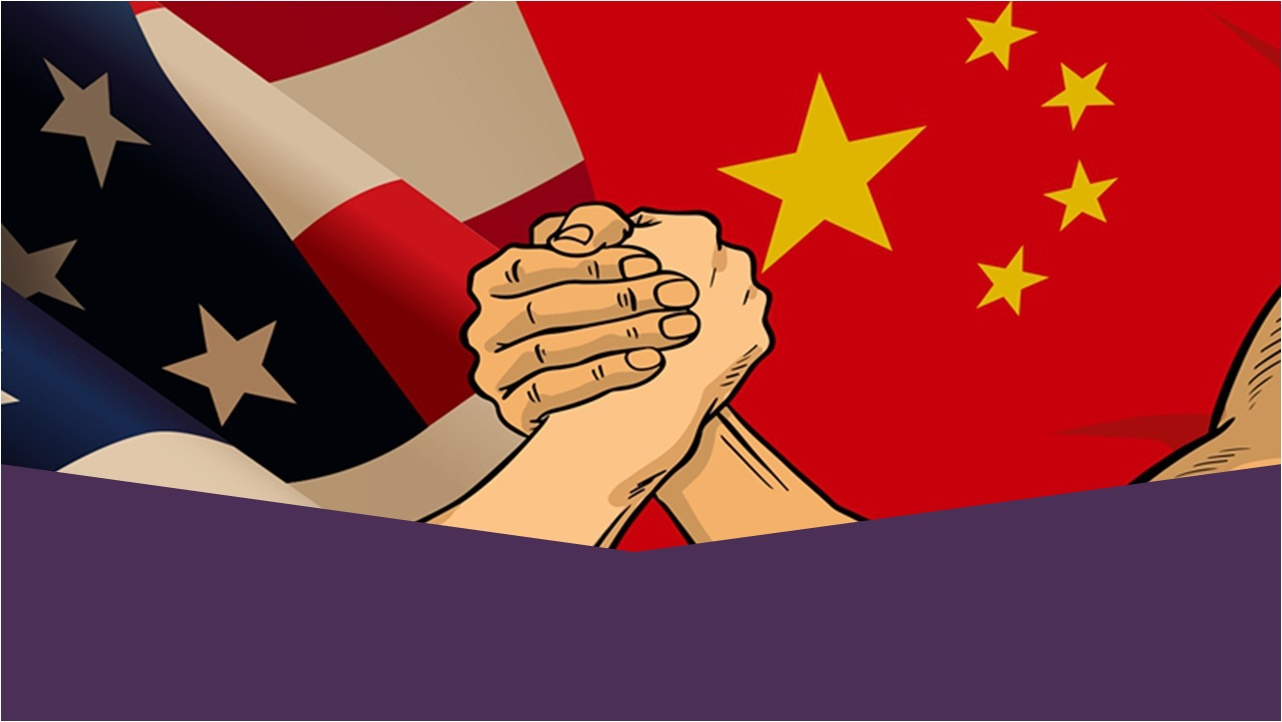Thesis Statement
While historians have identified several causes that contributed to the outbreak of the Cold War, it was primarily fueled by two significant factors: the deep-rooted ideological conflicts between Capitalism and Communism, which intensified the rivalry between the United States and the Soviet Union, and the escalating tensions between these two superpowers resulting from their competing interests and the expansion of their global influence.

Ideological Conflicts
One of the major causes of the long-term Cold War can be traced back to the strong opposing ideologies held by both the United States and the Soviet Union. It is important to understand how Russia viewed US policy towards communist states during that time.
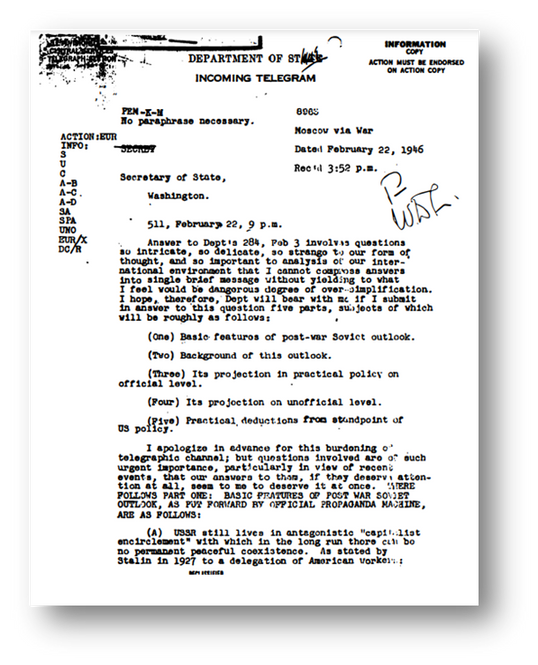
In the "Long Telegram," an American diplomat, George Frost Kennan advocated for a policy of containing Soviet expansion during the Cold War. Kennan sent the telegram to the US Department of State and mentioned, “Antagonistic ‘capitalist encirclement’ with which in the long run there can be no permanent peaceful coexistence… World communism is like malignant parasite which feeds only on diseased tissue”(Kennan). This significance lies in Kennan's emphasis on understanding Soviet motivations on communism and he expected the long-term struggle against communism. His advice of containing Soviet expansionism shaped US foreign policy throughout the Cold War. It is worth noting that there was an attempt from Soviet Union side just like what George F. Kennan had done in his "Long Telegram" to the U.S. State Department.



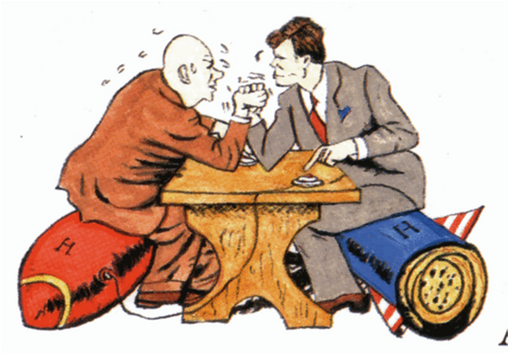
The response telegram by Nikolai Novikov, an Soviet Union ambassador, drafted in September 1946, stressed the dangers of possible U.S. economic and military domination worldwide and provided a Soviet perspective on American intentions during the early Cold War period. In the telegram, Novikov was alarmed that the U.S. had emerged from World War II economically strong and the contrasting viewpoint to Kennan's telegram. Novikov wrote, “The foreign policy of the United States, which reflects the imperialist tendencies of American monopolistic capital, is characterized in the postwar period by a striving for world supremacy. This is the real meaning of the many statements by President Truman and other representatives of American ruling circles; that the United States has the right to lead the world” (Novikov). It emphasized the Soviet Union's perception of the United States as a threat and led to countering American influence through alliances and Soviet knows American foreign policy was driven by economic and military interests, aiming to expand its influence worldwide under the name of capitalism. Both Kennan's "Long Telegram" and Novikov's response demonstrated the deepening lack of mutual understanding between the two superpowers and contributed to shaping the policies that characterized the Cold War era.

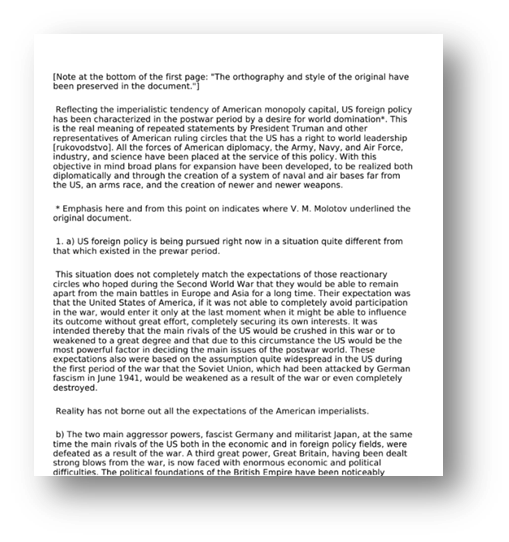
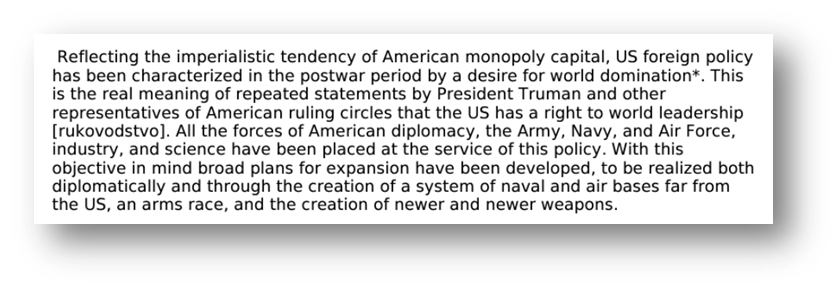

The tension between
the US and the USSR
Conclusion
